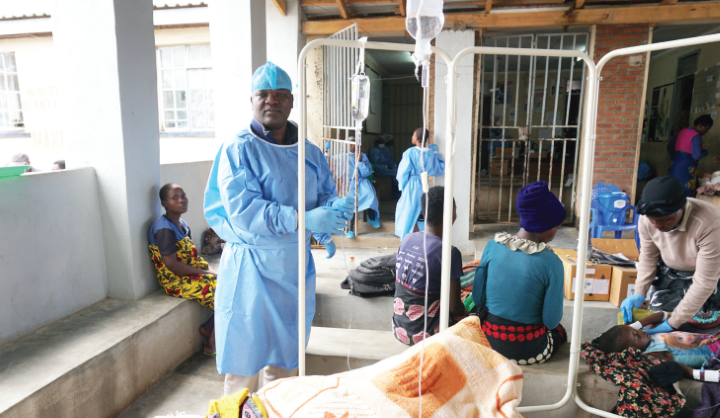Elderly men shunning circumcision

Medical officers at Thyolo District Hospital have complained that some men are shunning voluntary medical circumcision because they do not want to receive the service together with boys.
The district health officer Dr. Andrew Likaka says the development threatens to retard progress being made in the fight against HIV and Aids pandemic.
Conversely, the youth, adds Likaka, forthcoming in patronising circumcision in the district.
The age divide in responding to circumcision, experts fear, has a bearing on HIV and Aids fight in the district because some men are involved in unprotected sex with the young ones.
Equally disheartening is that Thyolo is one of the districts which have high HIV and Aids prevalence.
According to Likaka, the prevalence in the district is 21 percent—even higher than the national prevalence of 10.6 percent.
This is why the men’s position on circumcision is worrying Likaka.
“It is surprising to note that Thyolo is dominated by the Lhomwes, people who culturally practice circumcision. Most of them undergo it when they are between the ages of 9 and 14 years,” he said.
He indicates that it is not convincing for the elderly men to shun the practice because it is taking place at a centre where even the younger generations patronise.
Even in their quest for privacy, adds the doctor, the centre was set up away from the main hospital.
Behind the centre are tea plantations where clients can disappear into atr getting circumcised.
The doctor also says “some other men wonder why they should be circumcised after all they are already old.”
However, the patronage by the youths is encouraging and giving hope to the medical workers.
Thyolo Hospital started offering circumcision in October.
“Since then, we have circumcised 14 101 men out of which 10 340 are the youth. Seventy-five percent of them are aged between 10 and 24 years,” says Dr Likaka.
And out of the circumcised youths, only 100 were diagnosed with HIV and Aids.
“This means that most of the circumcised youths are negative and this is encouraging news,” says Dr. Likaka.
The high turnout is because the youth are generally sociable.
“They easily adapt unlike the older men who usually have lots of reservations. This is why when mixed with the children, the men feel uncomfortable and eventually shun the process,” adds Dr. Likaka.
Barbara Useni is a nurse who has worked as extension officer at the hospital since November last year.
“My general observation is that, indeed, older men shun the place. However, I have noted a change in the trend and that the numbers of such men has started picking up in the last few months,” she says.
Her presence has also encouraged some men and the youths as well to come forward for the circumcision.
“Actually, some clients say that they enjoy to be circumcised by a female attendant,” she says.
Ministry of Health spokesperson Henry Chimbali disclosed some months ago that the ministry intends to reach over 2.1 million by 2016.
The ministry has, therefore, opened up several health institutions to offer circumcision as the fight for zero HIV infection in the country rages on.
There are already positive outcomes as the number of the circumcised men keeps on swelling.
It is, therefore, critical that the older generation is wholly taken on board, especially when the reasons for their staying away from accessing services is trivial not wanting to be mixed with the young ones as is the case in Thyolo





